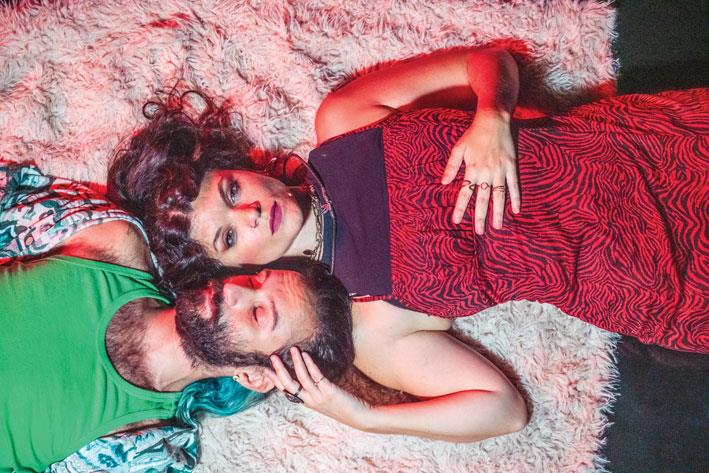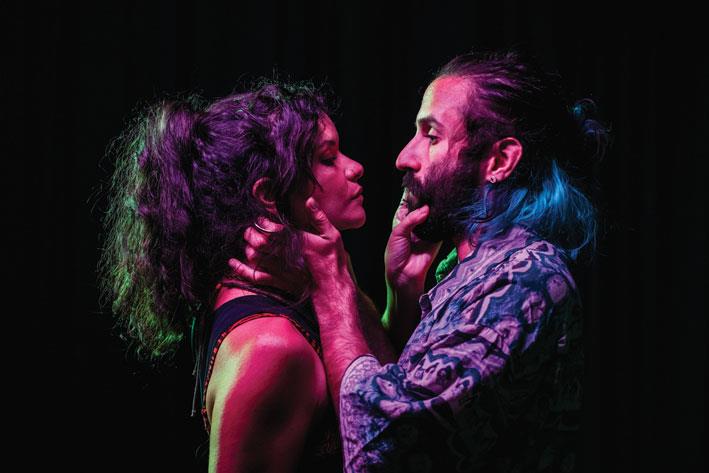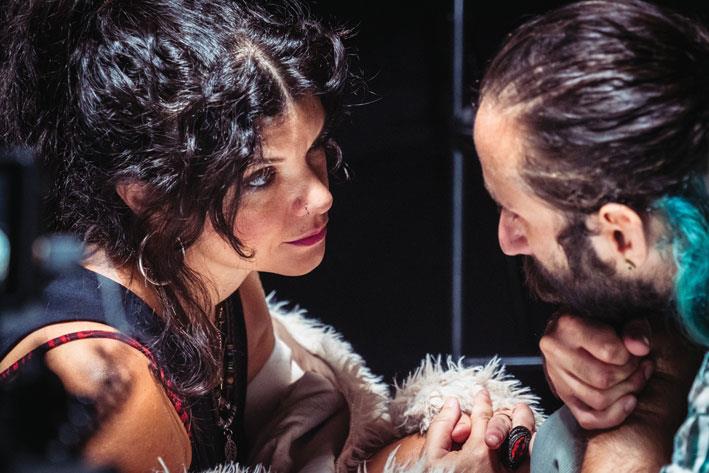'Għanjiet il-Baħħ' has achieved remarkable success in the UK, including an Olivier Award nomination and a win at the OffWestEnd awards. As this is its first international staging, how do you anticipate the Maltese audience will respond to it?
The Maltese audience will resonate with the play. Not only are the themes of addiction, toxicity and self-discovery universal, but Mark Vella's excellent Maltese translation will also draw the audience into a world that could be their own or that of someone close to their heart. The play's raw emotional honesty and the powerful dynamics between its characters are likely to strike a chord with anyone who has faced similar struggles or sought meaning in their relationships. Maltese audiences have shown a growing appetite for character-driven narratives within a contemporary style and context, and this work perfectly fits the bill.

The play has been translated into Maltese by Mark Vella titled 'Għanjiet il-Baħħ'. How do you think the translation will impact the themes and dialogue of 'Għanjiet il-Baħħ', and what was your role in ensuring the adaptation preserved the original's essence?
Vella's translation brings a new dimension to the play through linguistic choices that provide rich emotional depth to the dialogue, making the themes even more resonant. The translation, the first in any language for the original work titled Għanjiet il-Baħħ, captures the rawness and intensity of the original while adding a layer of cultural relevance that will make it more accessible to a local audience. As a creative team, we are working together to ensure that the uniqueness of the Maltese language enhances the characters' journeys.

'Għanjiet il-Baħħ' explores themes of connection and self-discovery through a chance encounter at an AA meeting. How do you plan to highlight these themes in the Maltese production, and are there any cultural nuances you are incorporating to resonate with the local audience?
We are focusing on the raw vulnerability and authenticity that emerge from the characters' interactions within a minimalistic set design by Romualdo Moretti, sound design by Michael Quinton and lighting design by Chris Gatt. By emphasising the universality of the theme and the toxicity of the relationship, both literally and metaphorically, direct references to the local context - beyond the language - seemed superfluous. Even if some moments may feel and sound uniquely Maltese, they still stem from the original text and are integral to the original narrative.

'Għanjiet il-Baħħ' is a two-hander, focusing on the dynamic between two central characters. How do you approach directing a play with such a limited cast, and what challenges or opportunities does this format present for both the actors and the overall production? Additionally, how do you ensure that this intimate setting remains engaging for the audience throughout the performance, and how do you explore the depth of the characters' relationship in such a confined narrative space?
Directing a two-hander presents both unique challenges and exciting opportunities. As an actor-centric piece focused exclusively on the performers' engagement as a duo, Jacob and Simone are undergoing an intensive creative process to unpack the characters and explore the intricacies of their relationship. As their director, my role is to facilitate a creative space that helps them forge a strong bond, one that electrifies the performance space with vocal rhythm, physical energy and emotional sensitivity. Playing drunk is off the table, yet the characters' blackouts dip in and out of moments of inebriation where time, space and truth are blurred. My approach with the actors involves a deep dive into both the physicality and emotional arcs of the characters, grounding the exploration in the non-linear and fragmented narrative.

Given your experience in directing and producing theatre productions, what unique challenges or opportunities have you encountered in directing the play for the intimate in-the-round stage at Spazju Kreattiv?
The in-the-round space at Spazju Kreattiv offers a unique opportunity to create an intimate experience for the audience. This setup demands a more nuanced approach to staging, as every movement and gesture is visible from all angles, allowing the audience to feel deeply connected to the characters' journey. The minimalistic approach, along with the slightly elevated performance space, draws all attention to the actors and heightens the intensity of the performances, making the rawness and vulnerability of the characters even more palpable. The spatial limitations, combined with intentionally placed obstructions and the demanding, strong physical interactions between the duo, call for precision in movement to ensure everyone's safety. We're leveraging this closeness to build a strong connection between the audience and the performers, making them feel like witnesses to each blackout and the fragments the characters are left with in each episode.
'Għanjiet il-Baħħ' (Blackout Songs) premieres on Friday, 18 October in Maltese with English surtitles. For more information visit www.kreattivita.org
